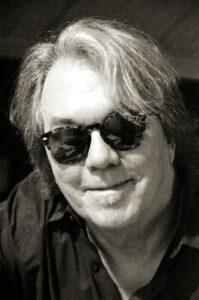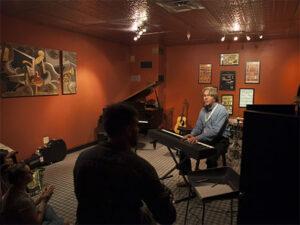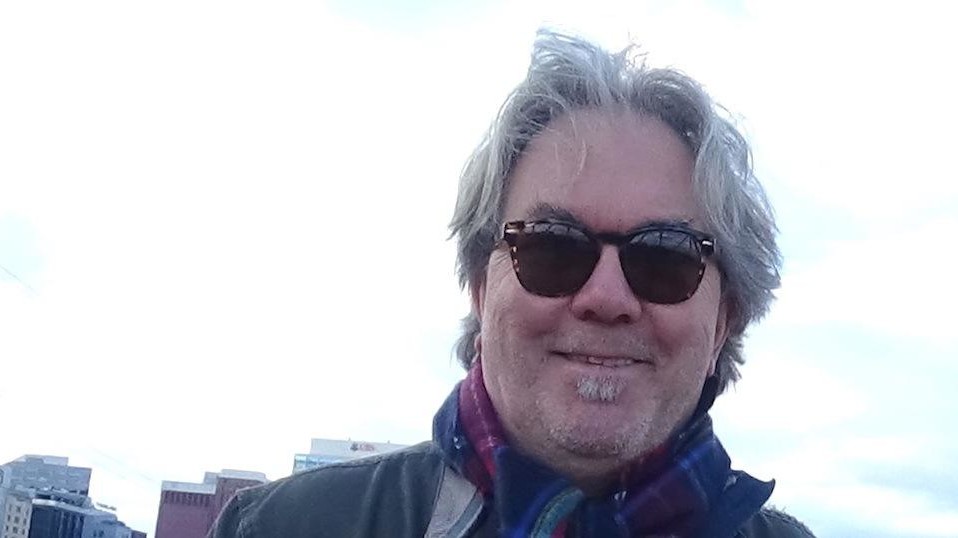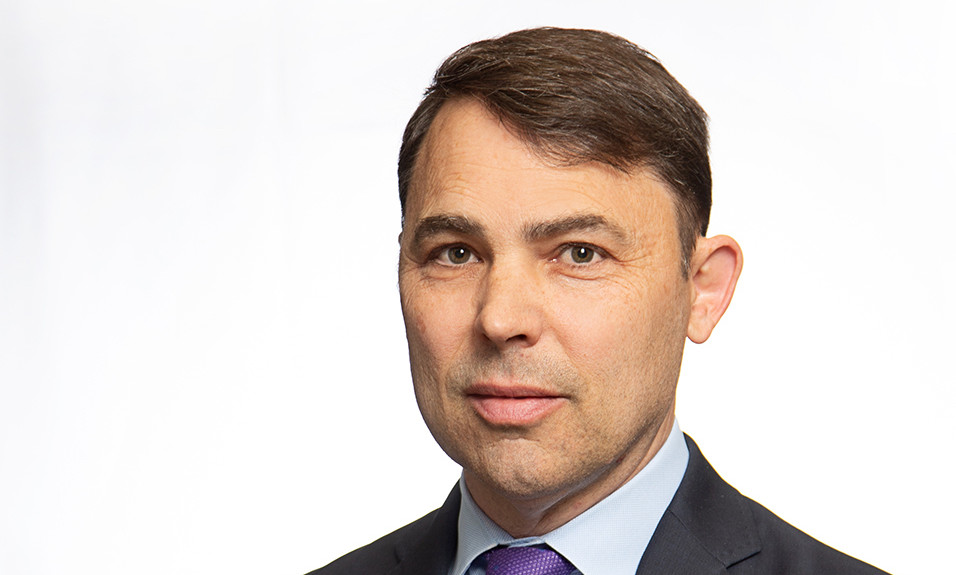John McAndrew has tapped into the simple secrets of song to heal himself, and now others
By William Wagner
March 18, 2021John McAndrew knows something about the curative power of music. As a professional piano player and a music therapist at the Nashville-based residential addiction treatment center Cumberland Heights, he sees it—and hears it—every day.
Once while he was playing old-time jazz at a senior living facility in Florence, Ala., a woman was wheeled into the room. She was covered in a blanket and seemed unresponsive. Lo and behold, when McAndrew broke into the song “All of Me,” she rose from her wheelchair, her face suddenly alight.
At Cumberland Heights not so long ago, McAndrew worked with an addiction patient who had never written a song and could barely play guitar. They spent about a week crafting a song about the patient’s fractured relationship with his son. When it came time to play the tune in front of his fellow patients, the novice composer sat on the stage, his hands shaking, and said to McAndrew, “I can’t do this.” McAndrew replied, “Yes, you can, because we’re gonna start right now.” Lo and behold, the joint went wild. By the end of the performance, the patient had tears in his eyes.
Thirty-seven years ago, there weren’t a ton of people doing [music therapy], but I was one of them. …I was doing that all over the country. I’d come out and work with the patients.”—John McAndrew, music therapist, Cumberland Heights
Another time at Cumberland Heights, a 74-year-old woman, the oldest patient at the treatment center, asked McAndrew if he’d play meditative music for her performance in a talent show he was staging. She wouldn’t give him details about why, which worried him some, but he complied. Lo and behold, as lithe and graceful as a woman half her age, she danced across the room and ended with a pirouette.
That’s the curative power of music.
“I have a big bag of tambourines and egg shakers [that he brings to his group sessions at Cumberland Heights],” says McAndrew, a 66-year-old native of Minneapolis-Saint Paul. “I play a song about how you can’t do [recovery] by yourself, and everyone plays along. They inevitably go nuts, dancing and jumping around. People smile, and there are endorphins dripping all over the floor. And then you can talk about more serious stuff because their hearts are completely open.”
Out of Tune
In McAndrew’s own life, music also has been restorative. But first it nearly broke him. “By the time I was almost 30, I basically lost my mind,” he says. It was the culmination of his toxic relationship with booze. A death wish, as he calls it—rock and roll style.

“I tried to pack a life in around my drinking, instead of the other way around for other people,” he says. “I tried to have a marriage, and I tried to work jobs, but I just couldn’t fit anything in once the drinking took more and more precedence. The music wasn’t any fun—nothing was any fun. I became a type 1 diabetic when I was 19. There was a point [after that] when I was pretty much told, ‘You need to take care of yourself.’ And inside my head I said, The heck with it. I’m going to die anyway, so I’m going to go out in a blaze of glory.”
The ending he was racing toward didn’t look much like glory. Among the stops—actually, the fateful stop—was a smoke-filled Minneapolis club, circa 1983, where his band was playing.
“I had gone to a bar and gotten really drunk and sort of passed out, and was late getting to the gig,” McAndrew recalls. “When I got to the gig, I didn’t know where I was. I walked into the green room of this place, and there was some local press. I just thought I was in someone’s bathroom, and I started to wash my face with whiskey. I remember walking out on the stage. I was supposed to sing Bob Dylan’s ‘I Shall Be Released,’ but I couldn’t remember it. On the way home, I thought of taking my own life several times by driving into oncoming traffic. I don’t even know how I got home that night.”
The following morning, beaten down to his core, he cried out, “God, help me!” And so began his recovery.
Getting in Tune
The music started flowing out of him as never before. He began writing his own songs and performing them as a solo act. After being “discovered” by a talent scout from Nashville, he was signed to a record contract. The next thing he knew, in 1996 at age 42, he was recording an album, Like We Were Made of Gold, at the famed Muscle Shoals Sound Studio in Sheffield, Ala. In addition to making more albums, he went on to place songs in movies such as Jake’s Corner, Little Red Wagon and Jesus, Mary and Joey.
All the while, he was blazing a trail as a music therapist, which was mostly uncharted territory in addiction treatment at the time. Says McAndrew, “Thirty-seven years ago, there weren’t a ton of people doing it, but I was one of them. And I happened to be near Hazelden [the renowned addiction treatment foundation in Minnesota], which really provided a ripple effect. I started to work at treatment centers like Hazelden as a speaker/performer. I was doing that all over the country. I’d come out and work with the patients.” And in the mid-2000s, after moving to Nashville, he set up shop at Cumberland Heights.
The Science Behind Music Therapy
Science is catching up with what McAndrew instinctively knew all along—that music lights up the brain. Studies have demonstrated that music, whether you’re playing or listening to it, taps regions in the mind that are conducive to treating addiction, including those regulating stress, emotion, cognitive function and physical pain.
Why would we not use [music] as a tool or a resource in healing for alcoholism and drug addiction? A lot of us aren’t aware that music therapy is happening every minute of our lives.”—John McAndrew
“The prefrontal cortex lights up like a Christmas tree under the influence of music,” McAndrew says. “With brain imaging now, we’re able to see this. It’s beautiful. For people who need proof, there’s your proof.”
Like mindful meditation, music has gone mainstream in addiction treatment. More and more programs now include it among their range of therapies.
“Why would we not use it as a tool or a resource in healing for alcoholism and drug addiction?” McAndrew says. “A lot of us aren’t aware that music therapy is happening every minute of our lives. When you get in an elevator, they have that ‘you’re claustrophobic—don’t worry’ music playing to mellow you out.”
The Beat Goes On
Few if any treatment centers utilize music to the extent Cumberland Heights does. Partially because of its location in Nashville, otherwise known as Music City, the facility treats numerous people in the music business, from players to roadies to managers. McAndrew helped to facilitate Cumberland Heights’ Music Professionals Program, geared specifically toward folks in the biz. Among its unique offerings is a workshop designed to help music professionals maintain sobriety while on tour.

All of this makes Cumberland Heights a dream stop at the end of a long, once-hard road for McAndrew. How good is the gig? The music doesn’t even need to be playing for him to break down barriers. Sometimes its mere trappings are enough for patients.
“A lot of times what happens is they’ll just sit in the music room holding a guitar and not play it for the whole hour,” he says of his sessions. “They just talk. There’s just comfort in holding on to that guitar. Or maybe we’ll play one little song and then start to talk about the real stuff that’s going on. It gets very emotional and intense at times; other times it’s really fun. You can tire out doing this work, but something told me early on that music is an important thing.”
If you want to learn more about McAndrew’s music, check out his website. And to give those in recovery a little boost, TreatmentMagazine.com has created a Spotify playlist, “Treatment Mag Mood Music.”














